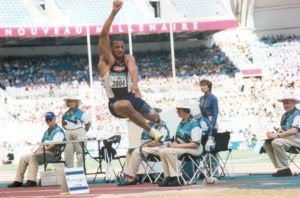
After an injury, John Register became a two-sport Paralympian
After having his left leg amputated following a devastating injury in practice, John Register became a Paralympic swimmer, sprinter and long jumper.
U.S. Olympic and Paralympic history is rich with the achievements of Black athletes who have built a lasting legacy for Team USA. From Olympians like Jesse Owens, Wilma Rudolph, Tommie Smith, and John Carlos to Paralympians like Bonnie St. John, Breanna Clark, and Brian Bell. Their journeys and contributions continue to inspire the world.
Learn more about their incredible stories during Black History Month at the U.S. Olympic & Paralympic Museum.
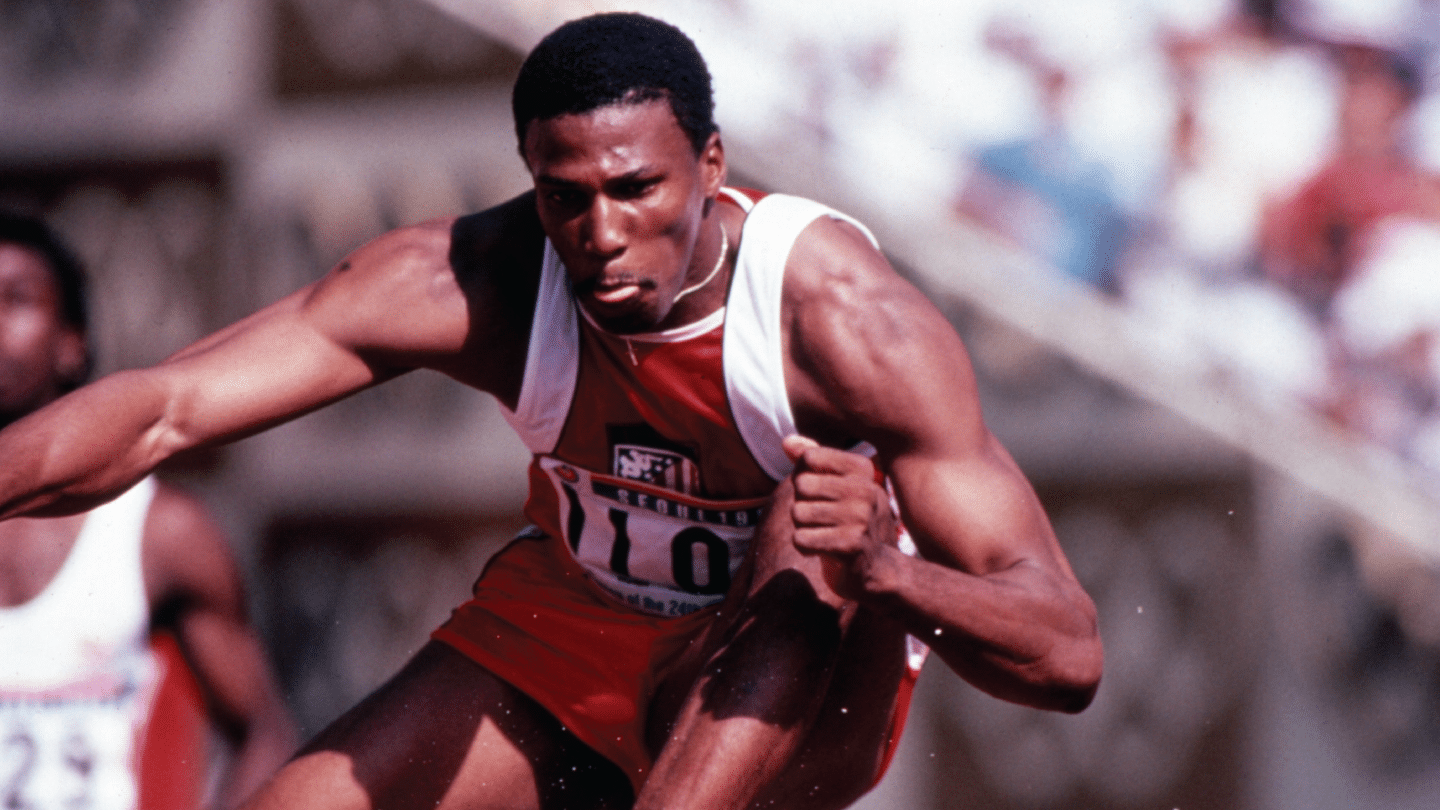
Black athletes have faced immense sacrifices and difficult choices, consistently pushing boundaries, exceeding expectations, and inspiring the world with determination and perseverance.
From Jesse Owens rejecting Nazi beliefs at the 1936 Berlin Olympics to Bonnie St. John becoming the first Black American woman to medal at the 1984 Winter Paralympic Games, these moments stand as powerful testaments to courage and resilience.
Today, athletes like Simone Biles and Allyson Felix redefine excellence while advocating for equality, shaping the future of Team USA, and inspiring the next generation. Despite systemic racism, prejudice, and countless obstacles, these famous Black athletes have achieved incredible success at the Olympic & Paralympic Games.
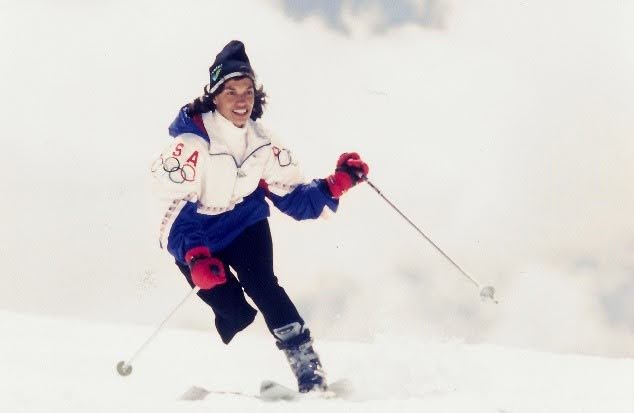
Paralympian Bonnie St. John at the Innsbruck 1984 Winter Paralympic Games.
From the first Black American to win an Olympic medal for Team USA, to Leroy Walker, the first Black American to coach a U.S. Olympic team, these accolades highlight the resilience and contributions of famous U.S. Black Athletes.
Andre Shelby: The first Black U.S. Paralympic archer, winning gold at Rio 2016
John Register: Became the first two-sport Paralympian.
George Poage: The first Black American to win an Olympic medal,
Simone Manuel: The first Black female swimmer to win individual Olympic gold. She won four medals, including gold in the 4×100 medley relay and silver in the 50 freestyle and 4×100 freestyle relay.
Allyson Felix: The most decorated Black track and field athlete from Team USA, boasting a total of eleven Olympic medals.
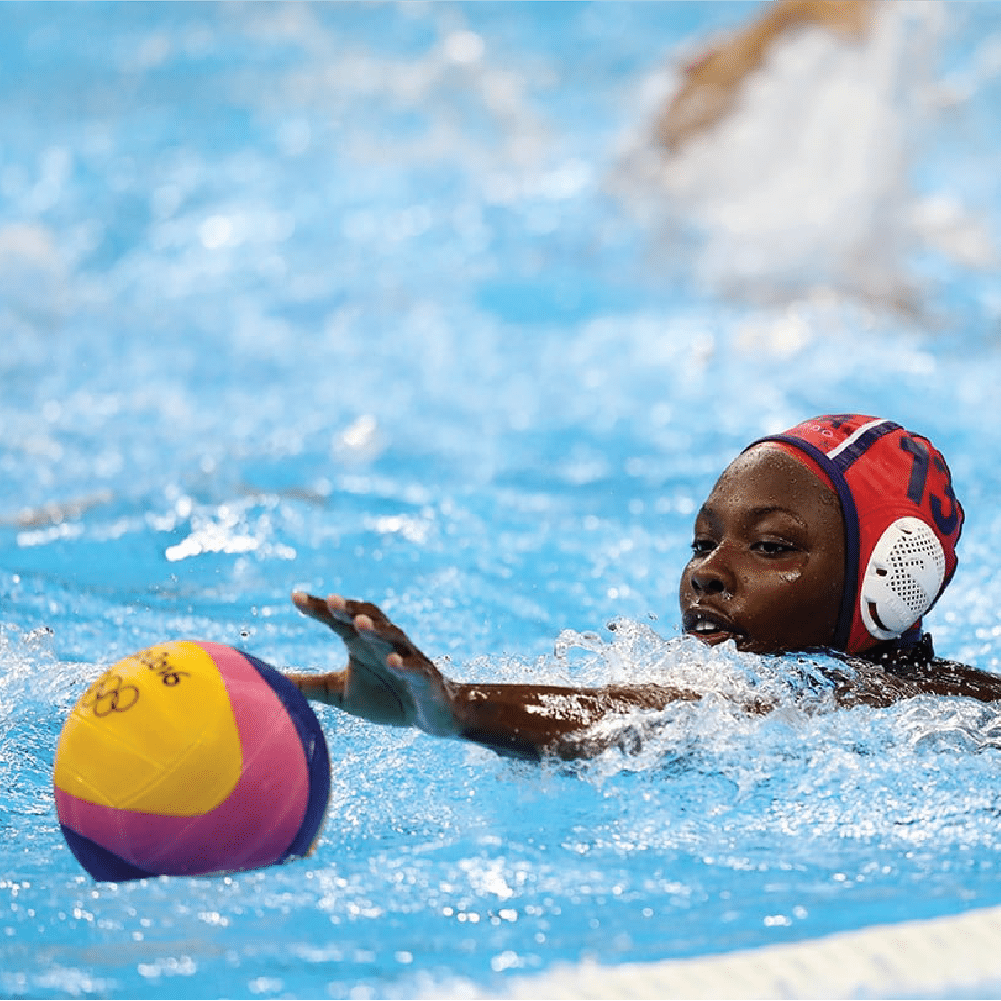
Ashleigh Johnson: The first Black woman to make the U.S. Olympic Women’s Water Polo Team.
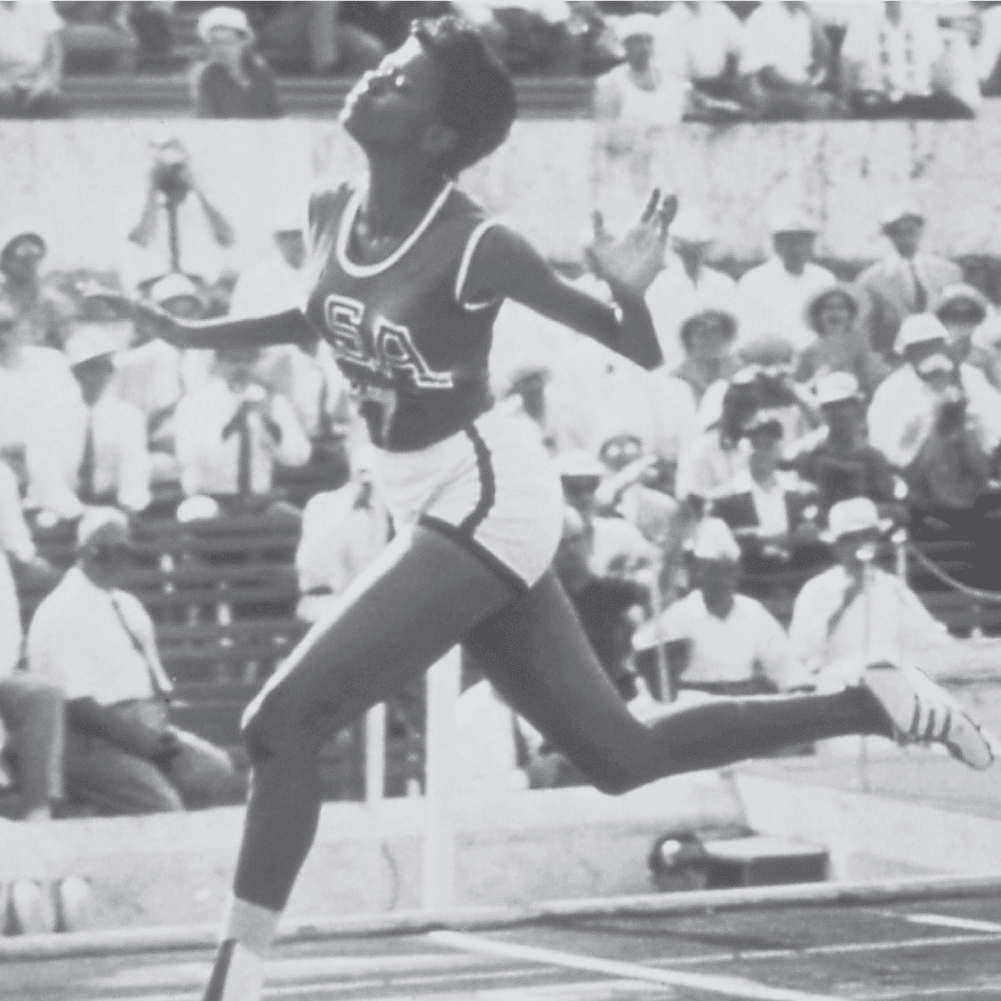
Wilma Rudolph: The first American woman to win 3 gold medals in a single Olympics at the 1960 Rome Olympic Games.
Bobsledder Vonetta Flowers: The first Black athlete to win Olympic Winter gold.
Simone Biles: One of the most decorated gymnasts of all time, has won eleven Olympic medals—four from the 2016 Rio Games, three from the 2020 Tokyo Games and four medals from the most recent Paris 2024 Games.
Eddie Tolan: The first Black athlete to win two Olympic gold medals.
The stories of these remarkable Black athletes are a testament to their enduring legacy, one that continues to shape Team USA and inspire the world. See more of Team USA’s athletes’ stories, images, testimonials, and more during Black History Month at the U.S. Olympic & Paralympic Museum.

After having his left leg amputated following a devastating injury in practice, John Register became a Paralympic swimmer, sprinter and long jumper.
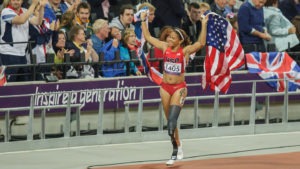
With a prosthetic left leg, April Holmes competed in four Paralympic Games, winning one gold medal and two bronze.
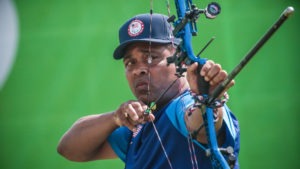
The first Black American archer to compete at the Paralympic Games, he was seeded 12th in the compound open tournament at Rio 2016 but captured the gold medal.
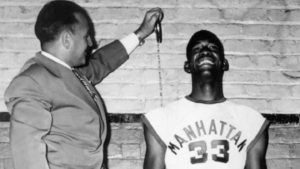
The first Black basketball player at Manhattan College, Kellogg famously exposed a point-shaving scandal. He later became a wheelchair basketball coach.
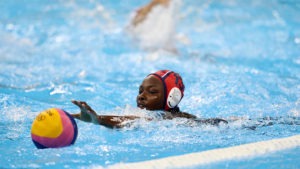
A trailblazer in her sport, Ashleigh Johnson helped Team USA win the gold medal at the Rio 2016 Olympic Games.
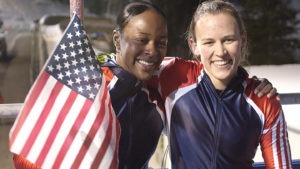
Vonetta Flowers paired with Jill Bakken to win the gold medal in bobsledding at Salt Lake 2002 – the first Olympic Winter gold medal ever won by a Black athlete.

At the Innsbruck 1984 Paralympic Winter Games, Bonnie St. John became the first Black American to medal in the Olympic or Paralympic Winter Games.
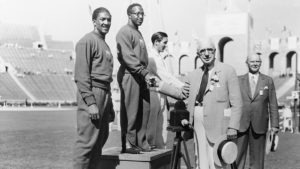
Although not the prototypical sprinter, Eddie Tolan almost always finished where sprinters wanted to be: first.
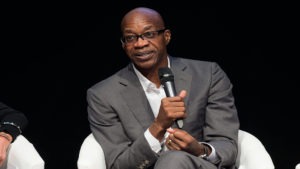
A four-time Olympian and two-time gold medalist, Edwin Moses has always shared his knowledge and experience to help fellow athletes and the next generation of athletes.
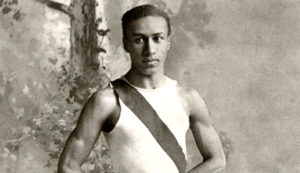
George Poage, the standout runner from Wisconsin won two bronze medals at the St. Louis 1904 Games, becoming the first Black American to win an Olympic medal.
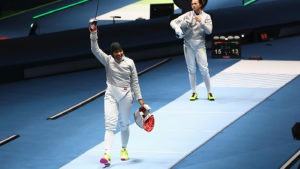
Fencing provided an opportunity to compete in sports and adhere to the tenets of her religion.
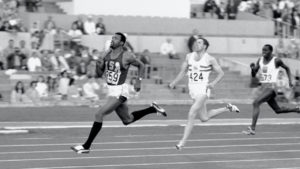
Once ostracized for having the courage to stand for his beliefs, half a century later track star John Carlos has embraced his role as a survivor.
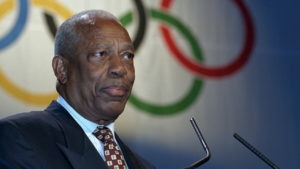
LeRoy Walker was the first Black American to coach a U.S. Olympic Team, guiding the men’s track and field team to six gold medals in the Montreal 1976 Olympics.
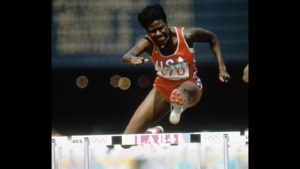
Months after graduating from college with a degree in industrial engineering, Mosley became the first Black woman to win the gold in the 100 meters.
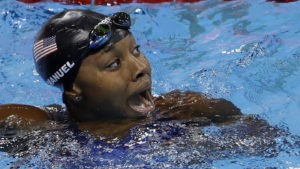
Simone Manuel won two gold medals and two silver medals at the Rio 2016 Olympic Games.
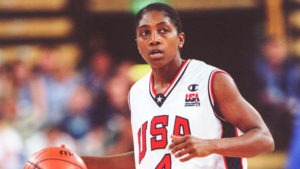
One of the great shooters of her generation, Teresa Edwards played in five Olympic Games and led the U.S. women’s basketball team to four gold medals.
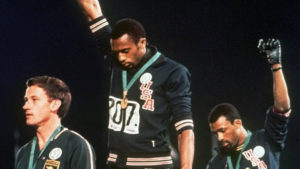
Tommie Smith is most remembered for his protest atop the Medal Podium, but his world-record speed is not to be overlooked.
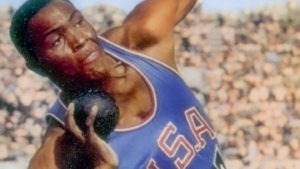
Rafer Johnson, 1960 decathlon champion, also lit the Olympic Cauldron at Los Angeles 1984 and excelled in and out of athletics.
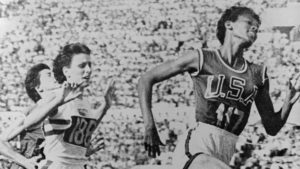
Despite being told she would never walk again, Wilma Rudolph won three track and field gold medals at the Rome 1960 Olympic Games.
We offer two different kinds of tours – self-guided, guided tour, or group-guided. Self-guided tours allow guests to explore the galleries at their own pace and the ticket is valid for the day. Our guided tours offer the option to take a 45-minute, 60-minute, and 90-minute guided tour, with time at the end to explore the galleries on your own. To learn more about group-guided tours, visit here. Please see pricing on the website.
Tickets are available online up to 90 days in advance. You can also purchase tickets at the front desk the day of your visit — just keep in mind that entry times are subject to availability.
Yes – we love field trips! Please email [email protected] for more information.
In recognition of Visa’s long-standing partnership, we are Visa preferred. We are a cashless property, including the Museum Shop and the Flame Café. Groups (12+ guests) can pay via check by emailing [email protected]. Tickets are tax-exempt, but we are required to add a 2% Park Union Business Improvement District Fee to the total.
Absolutely! For a larger group and if possible, we would like to get a preorder so that your guests do not have to wait for their food to be prepared. Please email to pre-order: [email protected].